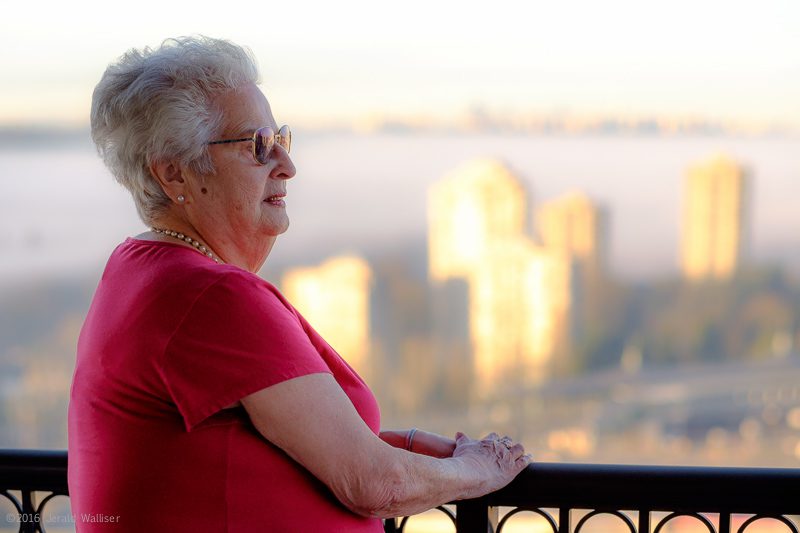
She was first hospitalized in the late 1960s, when she had what she describes as a nervous breakdown. “I had anxiety attacks. They were bad, and I went to see my doctor,” Joyce remembers. “He said I should be in the hospital.”
She was diagnosed with schizophrenia and given a prescription that Joyce says helped for more than 40 years. But then, around the same time her husband passed away, Joyce says the medication stopped working.
She ended up in Royal Columbian Hospital’s emergency department, where she was admitted to the Sherbrooke Centre for a short stay. There, psychiatrist Dr. Hem Phaterpekar put her on a new medication.
“Unfortunately, that is a reasonably common occurrence, where medication after some time may not have as good an effect as it did before,” explains Dr. Phaterpekar, who has a specialty in geriatric psychiatry. “Also, when one ages, of course, our bodies change significantly in their metabolism.
Physicians have a lot of strategies, where we can increase the dose, add other medications change the medication completely or utilize psychotherapy.”
Three years after that short stay, Joyce was again brought to emergency. “My podiatrist had come to my home, and she realized there was something that wasn’t right,” says Joyce. “Next thing I knew, the paramedics were here, and I was on my way to the hospital.”
This time she was admitted to the Sherbrooke Centre for a month. Her memory of the stay is hazy, but while in the hospital, her medication dosage was adjusted again. “The staff was so caring, and that made a lot of difference,” she says.
After being discharged, she followed up with the local community mental health centre but is now using her family doctor as her first point of contact.
“Our goal is always to have short hospitalizations,” explains Royal Columbian Hospital Psychiatry department head Dr. Anson Koo, “where people can begin to recover, where we can establish appropriate services and care in the community so people can continue their recovery in the community.”
These days, Joyce says she feels good. “I can cope. I am out almost every day. I socialize. I’ve got lots of good friends,” she says. “I am able to do my shopping, go to appointments and everything by myself.”
She credits family and friends for being supportive and says the reaction of those with whom she has shared her story has generally been positive.
“Some of them left me and didn’t understand,” notes Joyce. “Then I have friends that are really with me, and one of my girlfriends said she gave me credit for doing something about it. That made me feel good.”
